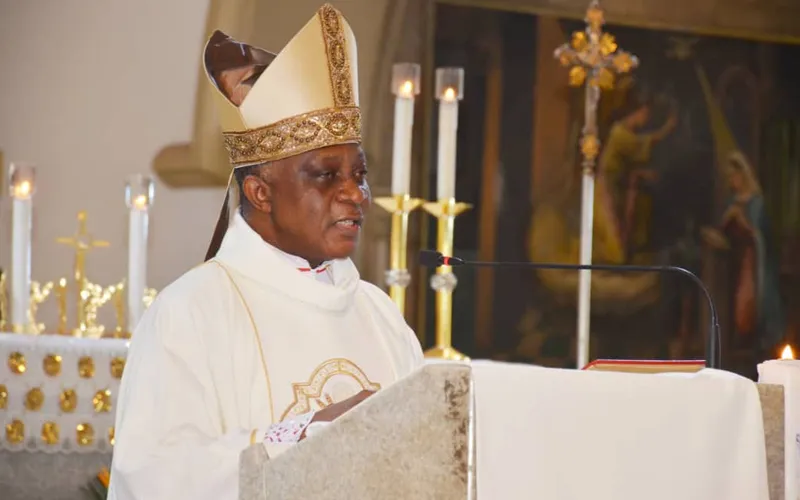He apportions blame to Muhammadu Buhari-led Government for its failure to address the various challenges bedeviling the West African nation and highlights corruption as a problem that competes favorably with insecurity.
“It is obvious that insecurity, apart from corruption, has become the single most serious problem that is facing our country today. Many innocent persons are being kidnapped for ransom, many are being attacked in their homes and displaced with their properties destroyed and normal life disrupted daily,” the Local Ordinary of Lagos is quoted as saying.
“Even Policemen and their stations are being deliberately attacked with impunity,” he bemoans and explains, “What this means is that the country is gradually drifting into a state of anarchy. This, no doubt, portends a grave danger for our collective wellbeing.”
In the Archbishop’s considered view, there is an urgent need for action. "This is no time to play the blame game or to play politics through sectoral efforts,” he says, justifying his call for the declaration of a state of emergency.
Alongside the declaration of a state of emergency in Africa’s most populous nation, Archbishop Adewale calls upon the Buhari-led government to “roll out practical action plans with time frames within which the situation will be brought under control.”
“There must be a collective effort through a robust consultation with all stakeholders. We all must come together to fight this hydra-headed monster of insecurity that is making life difficult for our people,” the Nigerian Archbishop who will turn 62 on June 1 recommends.
In making every effort to take back control of the country, Archbishop Adewale recommends “constant dialogue” with various stakeholders.
There should be, he says, “constant dialogue between representatives of the security agencies and major stakeholders such as religious leaders, traditional rulers, leaders of ethnic groups, the civil society, and political parties.”
The Catholic leader whose Archdiocese is headquartered in Nigeria’s largest city calls upon members of the “National Assembly to follow through on the process for the amendment of the Constitution of Nigeria so as to pave the way for such needs as the creation of state police and revalidation of the federal character of the republic. These would certainly help in restoring peace and security all over the country.”
He also attributes current Nigeria’s problems to what the May 28 describes as “an age-long systemic problem with governance at the national level.”








